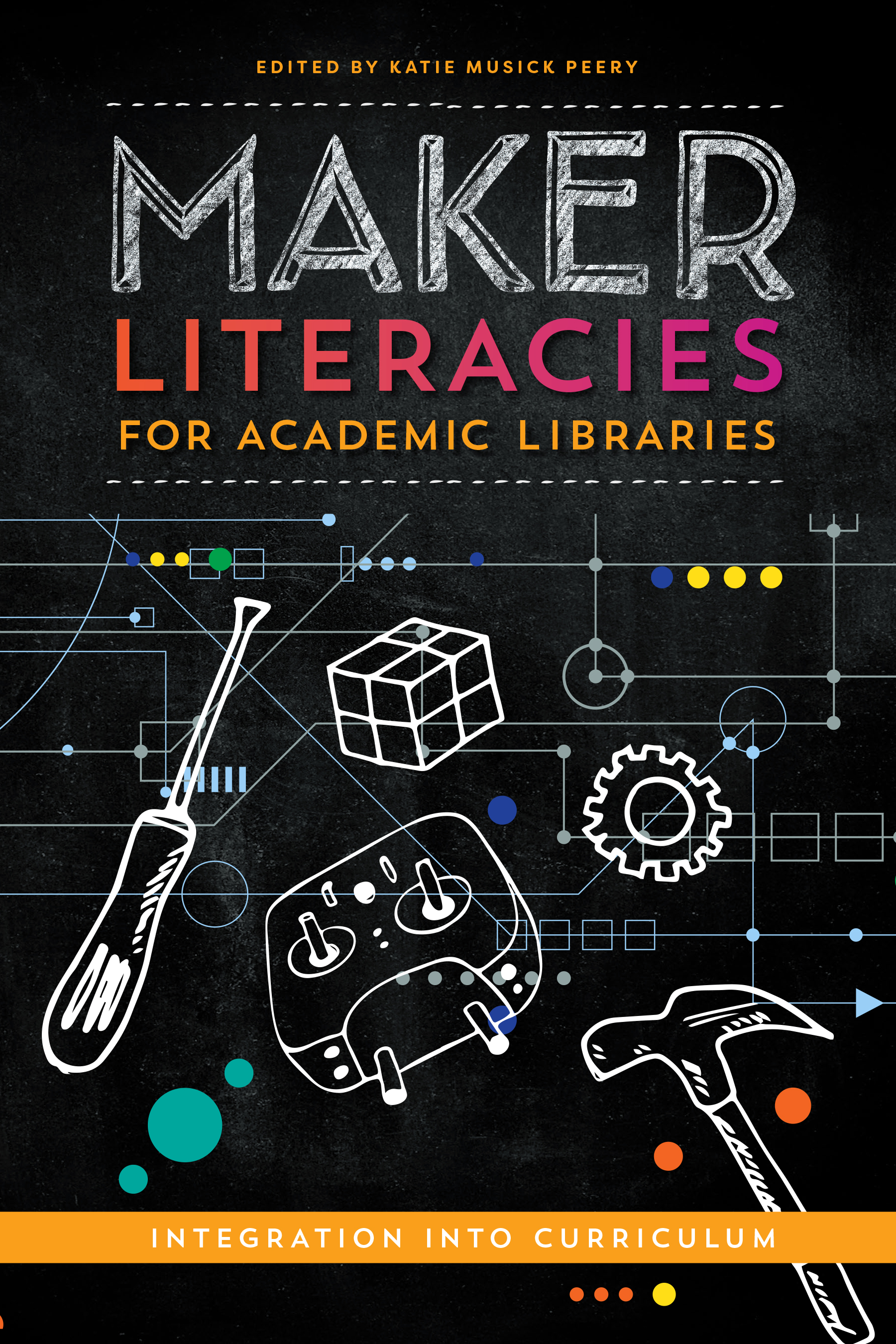Primary tabs
You don't need to be an ALA Member to purchase from the ALA Store, but you'll be asked to create an online account/profile during checkout to proceed. This Web Account is for both Members and non-Members. Note that your ALA Member discount will be applied at the final step of the checkout process.
If you are Tax-Exempt, please verify that your account is currently set up as exempt before placing your order, as our new fulfillment center will need current documentation. Learn how to verify here.
- Description
- Table of Contents
- About the author
- Reviews
Melding universities’ strategic goals with libraries’ teaching and learning mission, the academic library makerspace can be a powerful catalyst for information literacy, offering faculty partners a place for interdisciplinary, experiential learning. If you’re pondering what it takes to get your makerspace into the curriculum, this volume’s relatable, first-hand accounts from librarians, makerspace staff, and faculty partners will give you the confidence to make the leap. Contributors, drawn from the IMLS-funded Maker Literacies project, describe pilots and assessment for a variety of demographics, course subjects, and makerspace equipment. Guided by their experiences, you’ll be ready to fully partner with faculty through the course integration and assessment process. Inside, you’ll learn
- why academic librarians are uniquely situated to be leaders in the realm of makerspaces and makerspace literacy;
- how the ACRL Framework informs maker competencies;
- methods for using competencies and assessment in designing course assignments;
- 5 steps for guiding faculty in creating assignments for makerspaces;
- advice on developing a new staffing and service model to handle course-wide use of the makerspace;
- steps for taking students through concept, design, prototype, and final product in a project management course;
- how an ethical perspective engaged a women’s history course toward the “In Her Shoes” project;
- pedagogical strategies for integrating the makerspace into fine arts classes; and
- ways to showcase makerspace outputs to generate excitement around campus.
This book will empower academic librarians and makerspace staff to partner with faculty in their curriculum development, and to recognize the significant role they play in bridging the gap between the subject-based content students acquire in their courses and the interdisciplinary knowledge they can gain through making.
Preface
Acknowledgments
Chapter 1 Teaching and Learning through Making
Gretchen Trkay and Rebecca Bichel
Chapter 2 Who, What, and Why: Contextualizing Maker Literacies for Academic Libraries
Martin K. Wallace
Chapter 3 Transforming from an Ad Hoc Service to an Integrated Curricular Component
Tara Radniecki
Chapter 4 Inclusion by Design
Amy Vecchione
Chapter 5 Collaborative Curriculum Codevelopment for Studio-Based Learning
Morgan Chivers
Chapter 6 Design and Implementation in a Project Management Course
Jaime Cantu
Chapter 7 Establishing an Ecosystem of Makers on Campus
Sarah Hutton
Chapter 8 Faculty Collaborations to Put Maker Competencies into Course Assignments
Anna Engelke, Bryant L. Hutson, Kelly A. Hogan, Joe M. Williams, Danianne Mizzy, Megan Plenge, Jennifer Coble, Josh Corbat, and Mark McCombs
Appendixes
- Appendix A Beta List of Maker Competencies
- Appendix B Maker Competencies (Revised December 2018)
Bibliography
About the Contributors
Index
Katie Musick Peery
Katie Musick Peery is the director of the UTA FabLab at the University of Texas at Arlington Libraries. She provides leadership related to the development, management, and continuous improvement of the lab. Katie has published on diversifying makerspace student hiring and best practices for makerspace training to increase the inclusivity, impact, and efficacy of makerspaces on a college campus. Her grant work and research are primarily focused on integrating maker literacies into higher education curricula.
"Provides a wealth of information about makerspaces in university libraries ... This detailed, thoughtful book will be useful to librarians and faculty members interested in the nuts and bolts of creating and running a successful makerspace within an academic library."
— Library Journal
"Easy to digest and apply to any setting. It will be phenomenal for an academic library, but some of the information and tips could be just as useful in a school or public-library setting. Contributors do a wonderful job of elaborating on ways makerspaces benefit the arts just as much as they do STEM projects, and they provide examples of what has and has not worked."
— Choice



